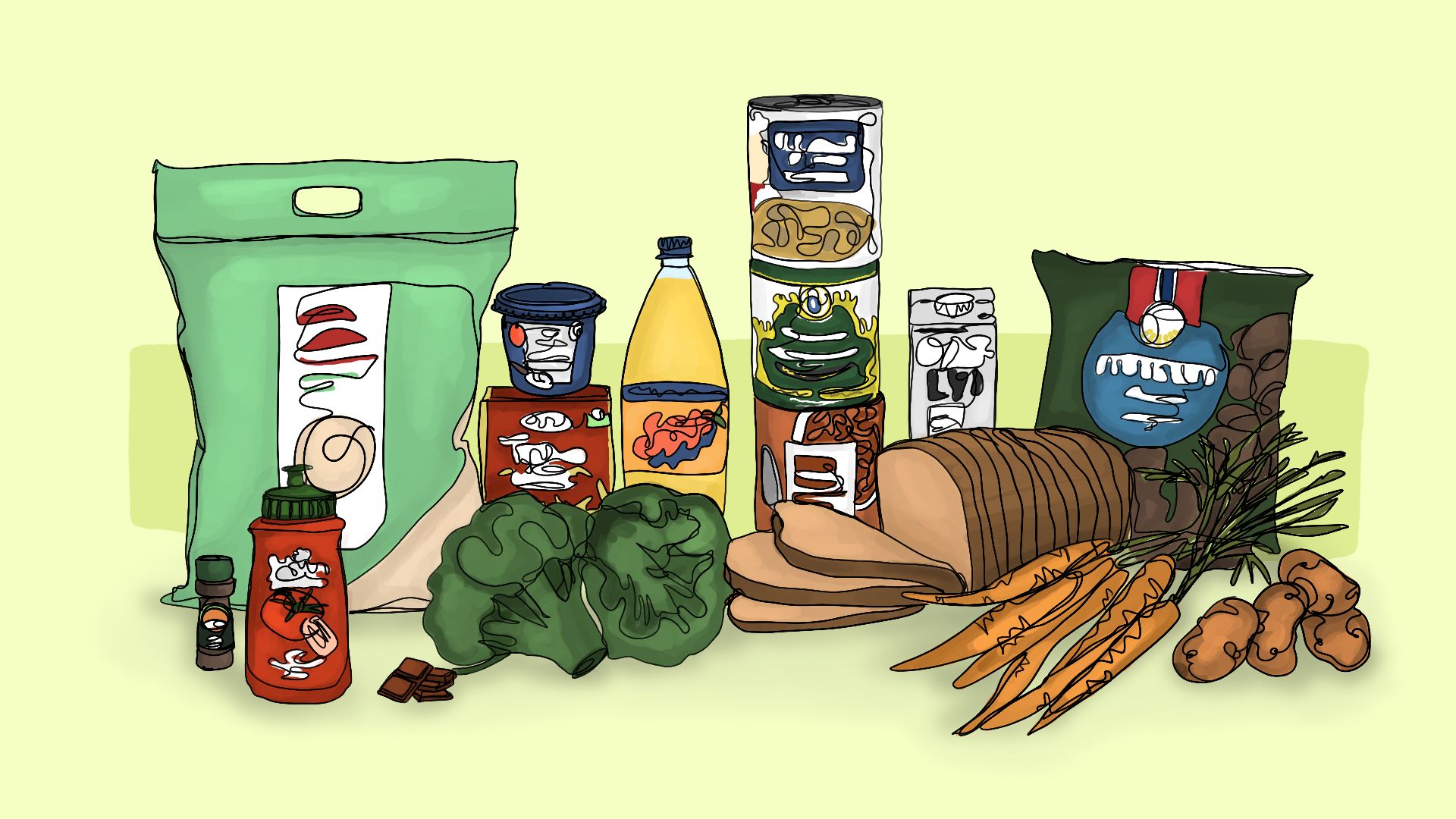Eating Habits
Small changes in your eating habits can affect your health, energy, concentration, and, most importantly, provide you with a more flexible budget.
A good diet is one that meets your needs for energy, carbohydrates, proteins, fats, vitamins, and minerals. A variety and combination of these nutrients will provide a feeling of satiety, prevent deficiencies, and provide good and stable energy throughout the day.
Establish a good meal routine
Regular meals help you maintain concentration and make it easier to avoid expensive and unhealthy impulse purchases. A guideline is three main meals and one snack. To achieve this, it is advisable to plan ahead, for example, by creating a weekly menu. Also, plan your lunch and any snacks, as homemade meals are always cheaper than eating out.
You can save a lot with a shopping list
When you go shopping, it's beneficial for both your wallet and your body to have a plan. Often, the ingredients you buy are enough for more than one meal, so see if you can plan to use the same ingredients in multiple dishes. For example, if you're making a salad, the same ingredients can be used for a wrap for lunch, a stir-fry for dinner the next day, and tacos on the weekend.
Be mindful of using your leftovers as well, such as incorporating a leftover day into your weekly plan or having leftovers for lunch the next day. Remember to eat a little before you go shopping. It can quickly become expensive, difficult, and unhealthy to shop when you're hungry.
Look for the price per kilogram and make more than one meal at a time
There can be significant savings on both food and electricity here. If there are large packages, check if you can split the cost with a friend. If you're already making the effort to cook proper meals, it's a good idea to make multiple portions and freeze them.
If you don't have a freezer
Limited freezer space? Several stores sell in small portions. It's great for making proper meals, and you only pay for what you're actually going to eat. Many dishes also keep well in the refrigerator. Plant-based products have a long shelf life and are a good source of nutrition for the body. They are also very cost-effective.
Look for discounted products nearing their expiration date
Here you can make great bargains on fresh ingredients. Most food items are labeled with a "best before" date, so when it's approaching, you can save from 30-50%. Fresh food can be easily frozen, either before or after it's cooked. Dry goods often last much longer than the expiration date suggests.
Time constraints
Do you have time to bake a pizza? Then you have time to make a delicious and healthy meal. Whole grain pita bread can be quickly heated in the oven or toaster. While they're warming up, you can fry fish cakes and cut some vegetables. Voilà! You have a complete and homemade meal in just 10 minutes.
Save money with apps
There are several apps that offer you deals, either regular offers like discounts on fruits and vegetables or deals on groceries you frequently purchase. They are often linked to your bank card, so you don't even have to think about it once you're registered. There are also apps like "Mattilbud" that provide an overview of offers in most grocery stores, or for example, "Too Good To Go" where you can buy discounted food dishes right before closing time from local restaurants, cafes, or bakeries.
Start with a small change
Making changes can seem overwhelming, but remember that you don't have to do everything at once. You can start with a small change and choose one that seems manageable for you to implement. For example, adding one snack each day, trying out a new dinner recipe every week, or cooking homemade meals once a week. You can also focus on choosing whole grain bread, eating more fruits and vegetables, or working towards reducing the number of meals purchased outside. By taking one thing at a time, the changes will be small, and you can gradually become more confident and smarter in the food choices you make. Bon appétit!
